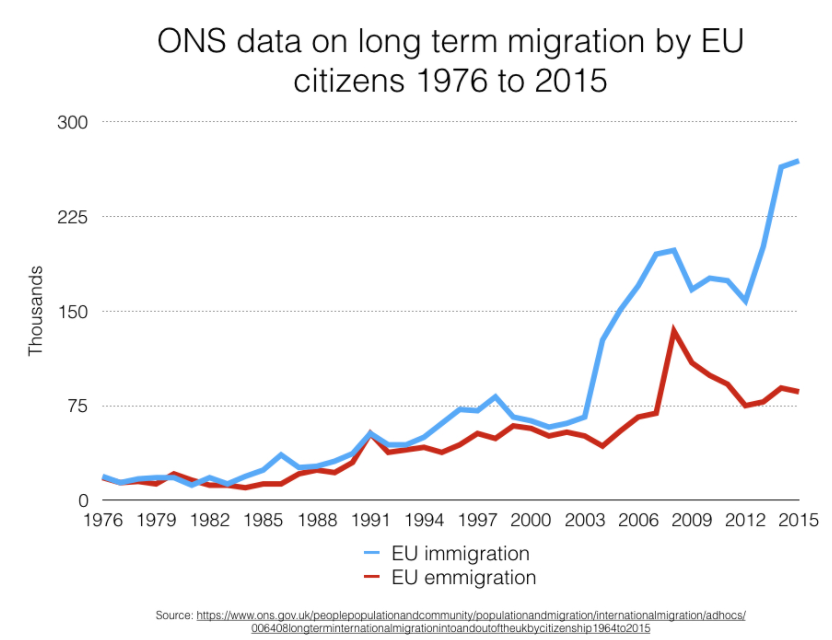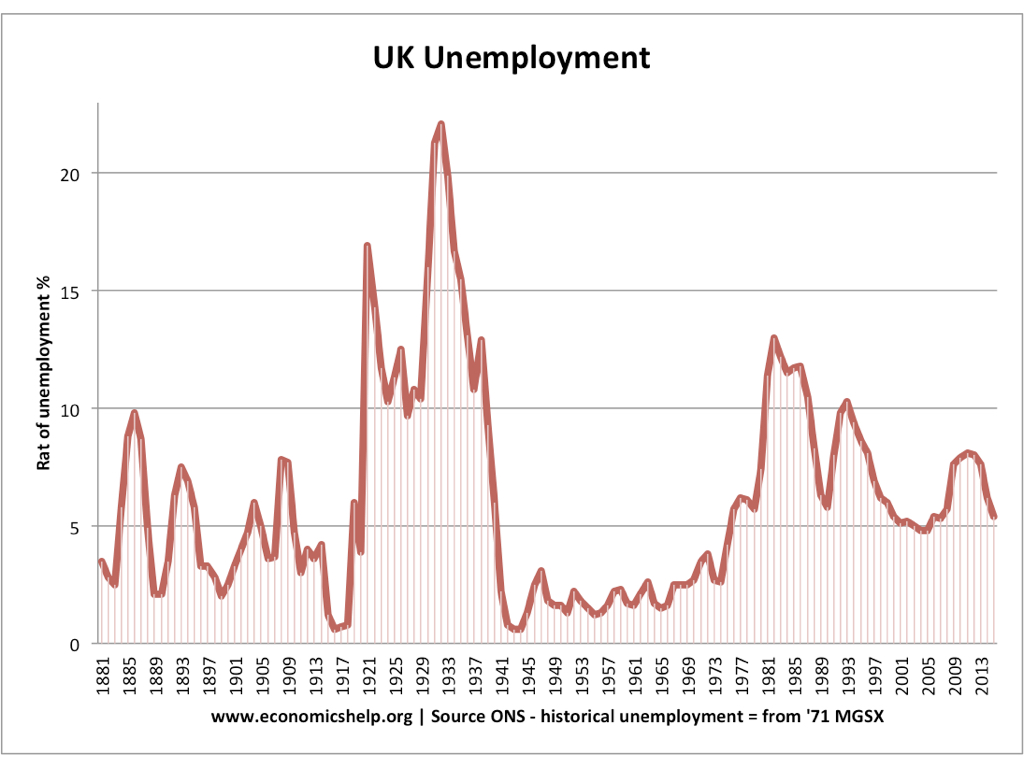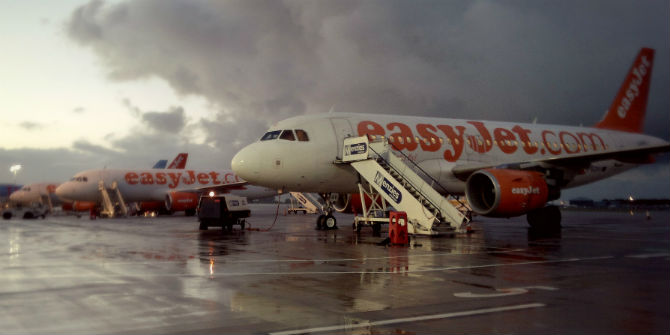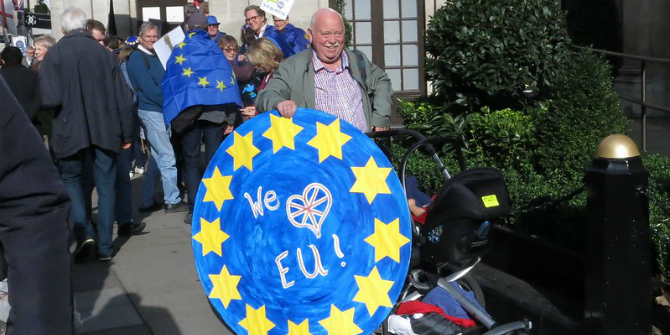 There was a short period of just 11 years between 1962 and 1973 when free movement of people did not apply in the UK. Other than during that time, businesses and public services have had easy access to workers from other countries, writes Colin Yeo. Following Brexit, the UK will be embarking on a similar period. If the full force of UK immigration law is brought to bear on all foreign nationals, this will require major adjustments in economy and society. One wonders how long the interregnum might last this time.
There was a short period of just 11 years between 1962 and 1973 when free movement of people did not apply in the UK. Other than during that time, businesses and public services have had easy access to workers from other countries, writes Colin Yeo. Following Brexit, the UK will be embarking on a similar period. If the full force of UK immigration law is brought to bear on all foreign nationals, this will require major adjustments in economy and society. One wonders how long the interregnum might last this time.
Citizens of the United Kingdom and Colonies: all equal
We often talk casually about “British citizens” but British citizenship is a relatively recent innovation. There has only been such a thing as a British citizen for just the last 34 years, since the British Nationality Act 1981 become law on 1 January 1983. Before that, there were Citizens of the United Kingdom and Colonies, or CUKCs.
Born in Swindon in 1959? You would have been a Citizen of the United Kingdom and Colonies. Born in Swahililand in 1960? You would have been Citizen of the United Kingdom and Colonies.
Both had the same rights and entitlements and were allowed to live and work anywhere within the territories of the United Kingdom and Colonies. There was total freedom of movement. Not only that, but that right of free movement was extended to all citizens of the Commonwealth as well, a much larger area even than the colonies, particularly as more and more countries gained independence.
This citizenship status of “Citizen of the United Kingdom and Colonies” was created by British Nationality Act 1948, which came into force on 1 January 1949. It replaced the status of “British subject” which pre-dated it.
After the war, Commonwealth countries decided they had had enough of quite literally being British subjects and decided to establish their own citizenships. CUKC status was the British effort and it applied equally to all within the UK and colonies. But there remained an umbrella status of Commonwealth citizens who retained free movement rights.
In the postwar boom the UK needed immigrants. There was a Royal Commission on Population which reported in 1949 and which stated immigrants “of good stock” would be “welcomed without reserve”.

And so they came, from all over. Irish immigration remained high under separate rules and many Europeans came to the UK in that period as well, as well as migrants from the Commonwealth. Famously working as bus drivers, manual labourers and nurses, these foreign nationals helped the UK rebuild after the trauma of the war.
Enoch Powell, health minister from 1960 to 1963 in the Macmillan government, famously invited Pakistani and Bangladeshi doctors and nurses to come to the UK because of a staffing shortage in the NHS. 18,000 are reported to have come. By 1971, 31% of all doctors in the NHS were born overseas.
But pressure to restrict immigration grew.
Commonwealth Immigrants Act 1962: some are more equal than others
In 1962 a Conservative government passed the Commonwealth Immigrants Act 1962, which for the first time curtailed free movement for citizens of Commonwealth countries and the Colonies.
CUKCs all still had the same title, whether born in Swindon or Swahililand, but some had more rights than others. Those who retained the right to live and work in the UK were:
- CUKCs born in the UK
- CUKCs with a CUKC passport issued by the UK
Those who were subject to control were everyone else, namely:
- CUKCs born in the colonies or independent Commonwealth countries or with CUKC passports issued by the colonial governments
- Commonwealth citizens
A notable group remained exempt from control because they had CUKC passports issued by the UK government: the East African Asians, as they became known. They were residents of Kenya, Uganda and Tanzania whose families were originally of Indian origin and who had made use of their rights of free movement as British subjects within the Empire to relocate, encouraged by the British and colonial governments.
The accepted norm was that when a country became independent, the citizens of the new country would lose the citizenship of the old country and gain the citizenship of the new country. The residents of these new, independent countries would no longer be CUKCs and would be subject to controls under the existing 1962 Act.
The problem was that some new countries excluded a whole swathe of residents from their new citizenships: the East African Asians. If CUKC status was removed from them, they would literally be stateless. If they were allowed to retain it, they might well move to the UK, as was their right, particularly given that the fact they were being excluded from citizenship in the new countries was a sign of worse to come.
Commonwealth Immigrants Act 1962: an end to equality
UK started withdrawal from the Commonwealth free movement area in 1962 and finished the job in 1968.
This time it was a Labour government which introduced new controls. Under the new Commonwealth Immigrants Act 1968, a CUKC could only live and work in the UK if they, or at least one of their parents or grandparents, had been born, adopted, registered or naturalised in the UK. This excluded almost all of the East African Asians, leaving them with the empty shell of a useless umbrella citizenship status, stranded in countries that would not given them local citizenship.
In short, the 1968 Act explicitly created a two tier system of citizenship rights based on parentage.
This was further codified in the Immigration Act 1971, which introduced the disturbing language of “patriality” to the right to live and work in the UK.
Into Europe
In 1973 the UK entered a huge new area of free movement of labour and people: what was then called the European Economic Community.
There was no “big bang” for immigration, though. The 1970s and then the early 1980s were a period of significant unemployment in the UK and economic contraction or very slow growth. There was no need for migrants, basically, and no-one would have wanted to come. This was long, long before Cool Britannia.
Inwards migration from the EU was a slow burn to begin with. We can see a gradual rise in immigration, but emigration broadly keeps pace. It is only from 2004 onwards we see significant net migration.
In legal terms, EU nationals were initially treated the same as other migrants under the same set of laws, but with specific immigration categories which only applied to them. A patchwork quilt of EU regulations and directives enabled specific but wide groups of EU citizens to move around the EU, including workers, the self employed, students and family members from within and without the EU.
When economic growth really got started, unsurprisingly we see significant rises in migration.
Before we move on, bear in mind that unemployment rates were historically very low indeed in the post war period until the mid 1970s, which was a clear indicator of a need for labour. The migrants who arrived had no problem finding work and there was no issue about them displacing native workers.
Back in the interregnum period of the 1960s and 1970s, before membership of the EEC started to take effect, the UK was considered the sick man of Europe. Post war unemployment was low and the economy grew, but at a slower rate than our closest neighbours. That started to change once we joined the EU and after the single market reforms of the 1980s.
Will that growth continue once we leave the EU?
What does full immigration control mean in practice?
In terms of what we are losing with Brexit, no-one has yet done a better job than the author of this letter to the Financial Times on 23 June 2016, the day after the referendum:
A quick note on the first three tragedies.
Firstly, it was the working classes who voted for us to leave because they were economically disregarded and it is they who will suffer the most in the short term from the dearth of jobs and investment. They have merely swapped one distant and unreachable elite for another one.
Secondly, the younger generation has lost the right to live and work in 27 other countries. We will never know the full extent of the lost opportunities, friendships, marriages and experiences we will be denied. Freedom of movement was taken away by our parents, uncles and grandparents in a parting blow to a generation that was already drowning in the debts of our predecessors.
Thirdly, and perhaps most significantly, we now live in a post-factual democracy. When he facts met the myths they were as useless as bullets bouncing off the bodies of clients in a HG Wells novel. When Michal Gove said “the British people are sick of experts” he was right. But can anyone tell me the last time a prevailing culture of anti-intellectualism has lead to anything other than bigotry?
Will it really be that bad? Will jobs and investment really dry up? Will opportunities, friendships and marriages really be lost? Won’t EU citizens still want to come here because it is all so marvellous in this country?
It will be that bad. Trust me, I’m an immigration lawyer.
Free movement, whether Commonwealth or EU, is by its nature frictionless. A person can simply be employed as long as they hold the right passport, no further questions asked. The UK immigration rules are not frictionless. They have traction. They chaff. They rub. And they are supposed to, because they are intended to make migration to the UK difficult and to keep people out.
Family immigration
Let us think about a fairly common scenario – falling in love and wanting to live in the same country as your loved one.
At the moment, all an EU national need do is show their passport as they enter the country – that’s it.
The cost of a spouse visa under the Immigration Rules is as follows:
Initial application £1464
Extension application £993
NHS surcharge £1000
Settlement £2297
Naturalisation £1163
TOTAL £6917
That is for this year. The fees are going up by around 20% per year at the moment and the Conservatives will triple the cost of the NHS surcharge after the election, so it will be much higher in future. And that is before legal costs; these days applications are so complex and require so much paperwork that lawyers are routinely needed.
There are other restrictions. The sponsor must earn at least £18,600 for a period of at least 6 months (a rule which separates families moving to the UK from abroad) and the spouse has to pass an English language test. That figure too will rise after the election.
In short, it will be a LOT harder for British citizens to have serious relationships with EU nationals in future.
Employing skilled workers
Another common scenario is to employ a foreign worker.
As with a spouse, at the moment all an EU national need do is show their passport as they enter the country – that’s it.
The upfront cost to an employer of employing a foreign worker currently ranges between £2356 for a small business and £6476 for a large one. The cost to the employee is £6627 (for a full breakdown, see the original post at Freedom of Movement).
The Conservatives will double the Immigration Skills Charge by 2020, so those costs are going to increase yet further.
These fees omit several other elements of friction:
- the fact that a skilled worker can only be recruited if the job has been advertised in a certain way and there were no suitable UK applicants
- the reference to the hundreds of pages of so called “SOC codes”, which impose a minimum salary for every conceivable job in the United Kingdom
- the quota on skilled migrants
- the fact the skilled worker will need to be sacked at the end of five years unless earning £35,000 (increasing to £36,200 by 2020)
- the cost of onerous sponsor administrative and compliance duties imposed by the Home Office, which can be extremely time consuming but neglect of which leads to loss of the sponsorship licence and therefore current and future foreign workers.
So what will employers do when they need workers? For example, what will a farmer do who needs labour for crop picking? Will the farmer find British workers to do the work? They don’t seem to want to and there is no pool of unemployed workers as unemployment is low (for now). Or will the farmer leave the crops to rot, grow different crops, or just stop growing crops and try to sell the farm?
How about the house building boom the politicians are always promising is just around the corner? Where will the workers come for that? If you are a construction company looking to make a profit building houses, where will you find the builders? There are insufficient trained UK builders and unemployment is low. Will you pay more and see your profits diminish or disappear but carry on regardless? Will you simply not build houses as it is not worth it? Will you somehow recruit young school leavers and train them up? Even if so, how will you build any houses in the meantime?
Or the nurses and doctors needed for the NHS?
When you look at what different ministers are saying, the minister for Environment, Food and Rural Affairs wants a sector based scheme for bringing in seasonal low skilled workers. The minister for housing wants a sector based scheme for builders. The Chancellor wants a sector based scheme for bankers. The minister for health wants to be able to retain and recruit doctors and nurses from the EU. Even Liam Fox, the disgraced and so far pointless minister for international trade, has recognised that immigration is part and parcel of any serious international trade deal.
Every minister seems to be realising that migrant workers are essential to their sector of economy and society.
Debate is needed on the cost of cutting immigration
The fact is that ending free movement and reducing net migration to tens of thousands per year would be disastrous for the UK economy and society. A detailed report published today by Global Future suggests net migration of 200,000 is necessary.
But politicians will not admit it. With no proper or meaningful debate, either immigration will be drastically reduced, causing huge damage and making everyone poorer, or immigration will remain high and the politicians will be accused of broken promises.
Neither outcome is a desirable one. We’re always being told that we need a “debate” about immigration, usually a coded way of saying “voters don’t want immigration, therefore we need to limit it”. We do need a debate about immigration: about the need for immigration.
This post represents the views of the author and not those of the Brexit blog, nor the LSE. It was first published at the Freedom of Movement blog.
Colin Yeo is a barrister at Garden Court Chambers who has been practising in immigration law for 17 years. His career began at two charities, the Immigration Advisory Service and Refugee Legal Centre.









Some trades and professions survive for centuries, some particular occupations appear and dis-appear in a matter of decades.Maybe the future for immigration lawyers will turn out better than expected.More red tape, more need for immigration lawyers, but if fewer migrants, then maybe fewer immigration lawyers.In my forty years plus of potential working life sofar, I have been employed for half that time.I cannot remember that at any time in the last forty-five years any one in the professions gave a hoot about the fate of blue collar workers put on the scrapheap due to whatever reason, but often due to political influence and financial/economic power to cut costs and increase profits.The UK is overpopulated as it is.There is absolutely no reason to maintain net migration except to please certain minority sections of society already over-privileged with huge relative political influence, huge structural economic advantages and with too much earning and spending relative to their real worth to society.Indeed, it can be argued that the privileged in the UK have become predatory upon the nation-state and the lower three socio-economic quintiles.The forced retreat of the welfare state, lower wages relative to the real cost of living and growing real unemployment has gone hand in hand with huge real gains for big business and the higher echelons of the professional class.It stands to reason that these professionals who fear they have something to lose due to Brexit are campaigning to keep their good takings.
However, it must be wondered whether the sections of society who have been particularly succesful since the Thatcher era may not at some stage push their advantage too far.Although the mainstream media has been careful to support the working class and the underdogs in western society in print, the underlying structural advantages allowing great financial returns to the privileged at the expense of the rest of society have never been exposed with rigour sufficient to stem the ongoing tide of ever greater returns for the rich and newly rich.
The state has been plundered by big business through the agency of the corrupt political and bureaucratic class.It has been a long party.Very many up-and-coming erstwhile working class have done very well.Many of the old middle class have been squeezed.Now more and more are being squeezed, even as the rich get richer.Some day this easy ride to riches will end.People in the professions and the casual and opportunistic occupations will have to get used to the idea that they have been privileged too much already.The complaints above are of no substance.Businesses have to adapt to changing circumstances just like everybody else.If farmers cannot get enough labour, well, they should offer better remuneration.Is the unemployed immigration consultant excused from finding work where it offers, unlike evrybody below that socio-economic station?Why?
If farmers cannot make a profit with one crop, well, they have to try another crop, or sell up and let someone else have a go.But no, there is a law, apparently, which states that land prices must always go up, even if it is at expense of the labour needed to work it.The entire immigration push is a nonsense.If business cannot make a go of it in the UK, well, they can always shift to some other country, as many do.The economy will adjust, the land and infra-structure are still there.Let someone else have a go, who is prepared to work for the good of the nation rather than become part of a growing pest upon the land.
I remember a news item in the THES in the 70s where an Oxford College had applied for a work permit for a visiting Scandinavian academic, an expert in medieval siege warfare. What they got back was a request for proof that they had advertised the job in a local job centre.
They should have put a postcard in the local newsagents window too – just to cover al bases.
Easy access to migrant workers has changed towns and cities with overcrowding conjestion, anti-social behaviour and poor standard of living where areas once thriving become rundown
I seen exactly the opposite happen the area where I work. Can’t really see the need to add more.
@juliet
Rundown by economic activity? I’m yet to see anywhere that became rundown by a boost to economic activity. Or do you mean it changed in a way that wasn’t to your advantage or taste?
Thanks to Colin Yeo for the informative post,particularly the costs breakdown.
Re: the shortage of skilled workers: “the proportion of EU workers in the tech sector is far higher than the average – up to a third in London alone”: see https://www.rsmuk.com/news/number-of-tech-start-ups-double-since-brexit-vote
I suspect many of the ‘economically disregarded’ appreciate why skilled workers are needed and even why it is necessary for organisations to employ foreign workers when they can’t source in the UK. But if we are leaving the EU, why haven’t the government started training UK workers to fill the gap?
Perhaps the answer might be that any Free Trade Agreement with India (population of 1.25 billion) will require us to take hundreds of thousands of their skilled workers, who may well cost employers even less than EU workers.
When people are made redundant because businesses re-organise or move production elsewhere, there is no suggestion that these people are goven comparable jobs or remuneration while they are waiting to be re-employed.They are told that change and adjustment are part of life and just to get on with it.Now is the time for business also to adjust to inevitable change.If they cannot hire from the labour pool within the country they have the right to adjust their business to suit the circumstances or take their business abroad.They should be told exactly what workers are told when they have to take redundancy, are summarily fired or shifted sideways into lower pay.On the other hand, limited net migration would be fine if it benefits the country and the people at large.There is an automatic assumption that big business should have the running of the country and everybody else should have their citizen’s rights put in indefinite abeyance.That all the rules, regulations, laws and interpretations should tailored exactly to the wishes of big business.There is a whole wide world out there.If you don’t like it in this country, go somewhere else.The majority rules.Do the majority who are legal citizens wish for unimpeded import of labour from abroad for farmers who want cheap labour and other businesses who wish not to train people from within the country.Its democracy at work.If you don’t like it, you can try to change it or put up with it or emigrate if you will.That is basically what people who are put on the scapheap are told, if anything.What’s good for the goose is good for the gander.If immigration is not sorted to the satisfaction of the majority, UKip will be back in force.
Let May sort it, or Corbyn, or whoever.The people have spoken for Brexit.If you don’t except the vote, next time the majority votes your way you might find a minority sabotaging the result likewise the remoaners now.
Well, try to be humble please. The majority rules, yes; and that’s why you’ll need to accept the consequences for that.